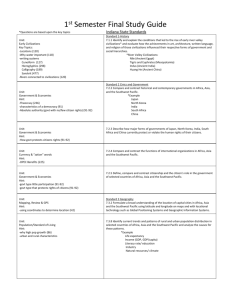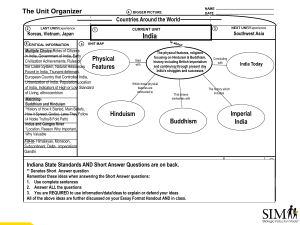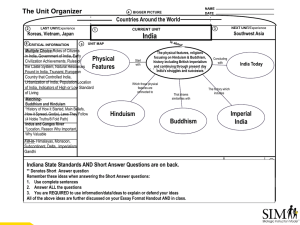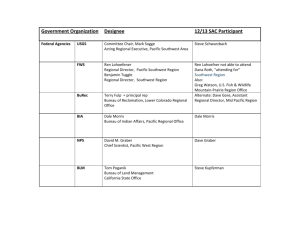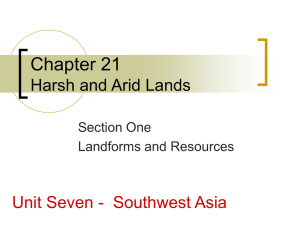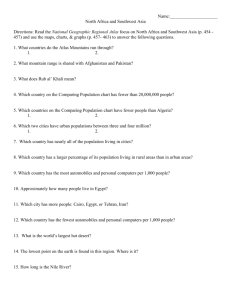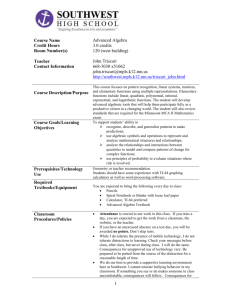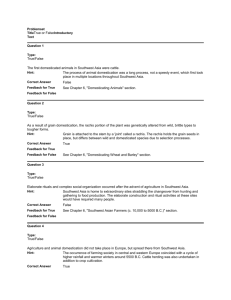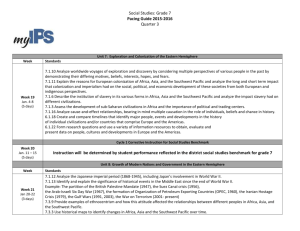Short Answer Questions
advertisement
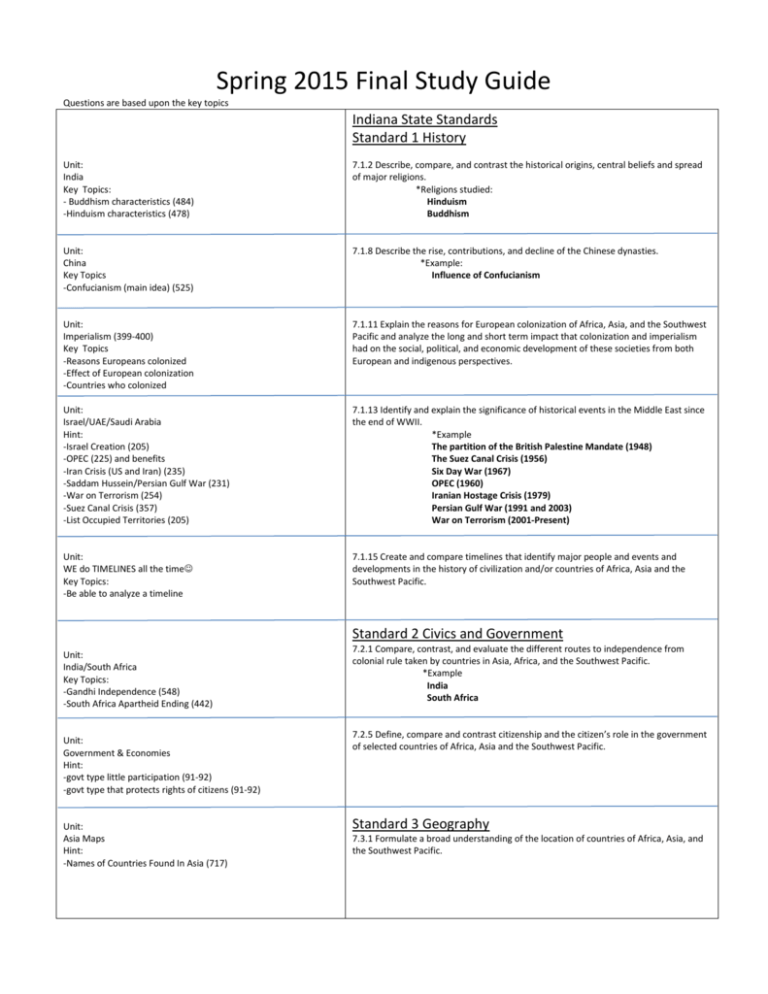
Spring 2015 Final Study Guide Questions are based upon the key topics Indiana State Standards Standard 1 History Unit: India Key Topics: - Buddhism characteristics (484) -Hinduism characteristics (478) 7.1.2 Describe, compare, and contrast the historical origins, central beliefs and spread of major religions. *Religions studied: Hinduism Buddhism Unit: China Key Topics -Confucianism (main idea) (525) 7.1.8 Describe the rise, contributions, and decline of the Chinese dynasties. *Example: Influence of Confucianism Unit: Imperialism (399-400) Key Topics -Reasons Europeans colonized -Effect of European colonization -Countries who colonized 7.1.11 Explain the reasons for European colonization of Africa, Asia, and the Southwest Pacific and analyze the long and short term impact that colonization and imperialism had on the social, political, and economic development of these societies from both European and indigenous perspectives. Unit: Israel/UAE/Saudi Arabia Hint: -Israel Creation (205) -OPEC (225) and benefits -Iran Crisis (US and Iran) (235) -Saddam Hussein/Persian Gulf War (231) -War on Terrorism (254) -Suez Canal Crisis (357) -List Occupied Territories (205) 7.1.13 Identify and explain the significance of historical events in the Middle East since the end of WWII. *Example The partition of the British Palestine Mandate (1948) The Suez Canal Crisis (1956) Six Day War (1967) OPEC (1960) Iranian Hostage Crisis (1979) Persian Gulf War (1991 and 2003) War on Terrorism (2001-Present) Unit: WE do TIMELINES all the time Key Topics: -Be able to analyze a timeline 7.1.15 Create and compare timelines that identify major people and events and developments in the history of civilization and/or countries of Africa, Asia and the Southwest Pacific. Standard 2 Civics and Government Unit: India/South Africa Key Topics: -Gandhi Independence (548) -South Africa Apartheid Ending (442) Unit: Government & Economies Hint: -govt type little participation (91-92) -govt type that protects rights of citizens (91-92) Unit: Asia Maps Hint: -Names of Countries Found In Asia (717) 7.2.1 Compare, contrast, and evaluate the different routes to independence from colonial rule taken by countries in Asia, Africa, and the Southwest Pacific. *Example India South Africa 7.2.5 Define, compare and contrast citizenship and the citizen’s role in the government of selected countries of Africa, Asia and the Southwest Pacific. Standard 3 Geography 7.3.1 Formulate a broad understanding of the location of countries of Africa, Asia, and the Southwest Pacific. Unit: Asia Maps Hint: -Names of Physical Features Found in Asia (716) 7.3. 4 Identify major physical characteristics of regions of Africa, Asia, and the Southwest Pacific, such as deserts, basins, plains, mountains, and rivers, and describe their formation. Unit: Saudi Arabia Hint: -Formation of Oil (228) -Location of Oil Reserves (224) 7.3.6 Compare and contrast the distribution of natural resources in Africa, Asia, and the Southwest Pacific: describe how natural resource distribution can impact the wealth of a country. Unit: South Africa Hint -ethnocentrism definition (400) 7.3.9 Provide examples of ethnocentrism and how this attitude affected the relationships between different peoples in Africa, Asia, and the Southwest Pacific. Short Answer Questions: 1.11 Explain the reasons and effects for European colonization of Africa in 1900s. (357, 399, 421, 441) 7.1.13 Identify and explain (focus on CAUSE AND EFFECT) the significance of historical events in the Middle East since the end of WWII. War on Terrorism (2001-Present) (231) 7.2.1 Compare, contrast, and evaluate the different routes to independence from colonial rule taken by countries in Asia, Africa, and the Southwest Pacific. South Africa (Nelson Mandela) (442-447)
